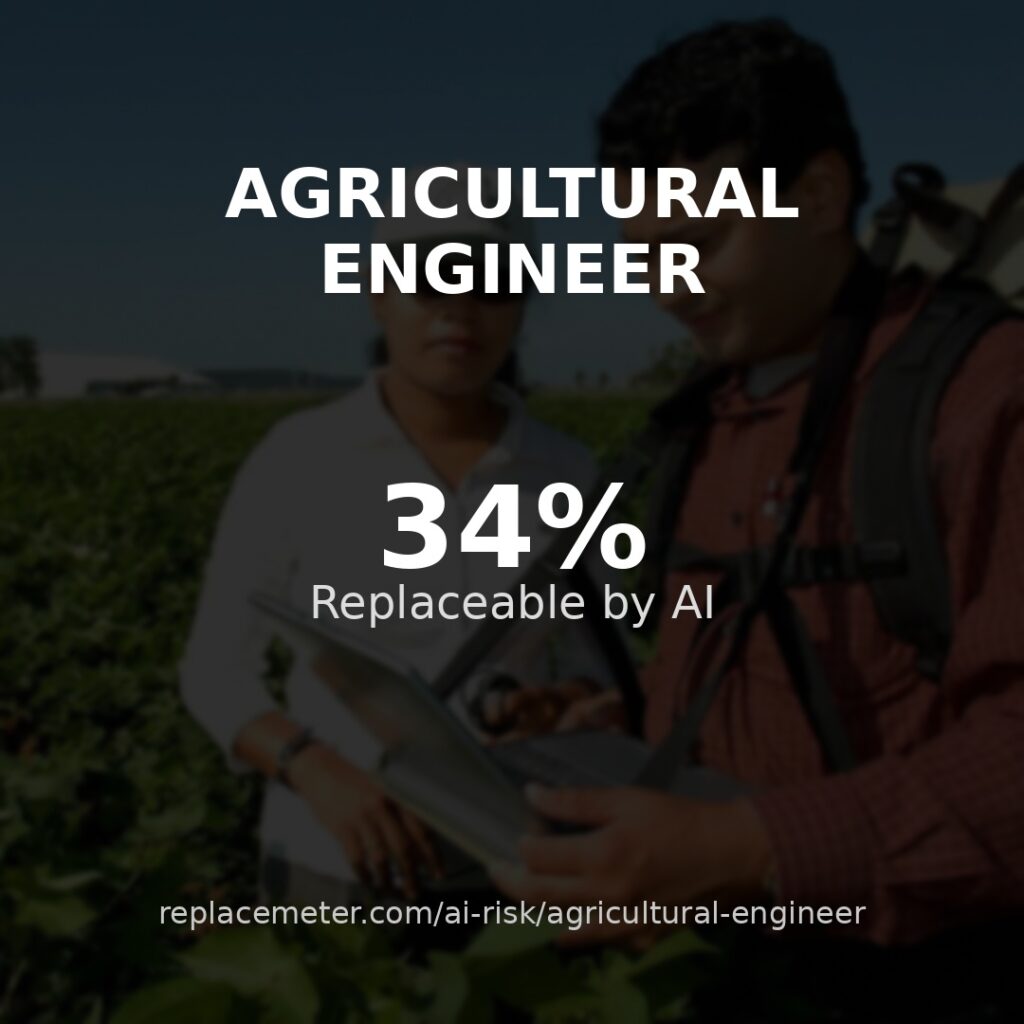
Can AI Replace Agricultural engineer in 2026
📊 AI Risk & Work Flexibility
🤖 AI Risk Assessment
Risk Level Summary
How likely AI will automate tasks in this role
How protected your career is from automation
💡 Understanding the Scores
Task automation risk reflects what AI may take over. Career security reflects how your skills and experience protect you from that.
🧠 AI Resilience Score (82%)
How resistant the job itself is to AI disruption.
- Human judgment & creativity (25%) — critical thinking, originality, aesthetics
- Social and leadership complexity (20%) — team coordination, mentoring, negotiation
- AI augmentation vs. replacement (20%) — whether AI helps or replaces this work
- Industry demand & growth outlook (15%) — projected job openings, industry momentum
- Technical complexity (10%) — multi-layered and system-level work
- Standardization of tasks (10%) — repetitive and codifiable tasks
👤 Personal Adaptability Score (84%)
How well an individual (with solid experience) can pivot, adapt, and remain relevant.
- Years of experience & domain depth (30%) — experience insulates from risk
- Ability to supervise/direct AI tools (25%) — AI as co-pilot, not replacement
- Transferable skills (20%) — problem-solving, team leadership, systems thinking
- Learning agility / tech fluency (15%) — ability to learn new tools/frameworks
- Personal brand / portfolio strength (10%) — reputation, GitHub, speaking, teaching
📊 Core Analysis
Analysis Summary
An Agricultural engineer designs, develops, and tests systems, structures, or products. They apply mathematical and scientific principles to solve technical problems, ensure safety, and optimize performance.
Career Recommendations
Stay current with industry trends and technologies relevant to the Agricultural engineer role.
Develop strong analytical and communication skills.
Seek opportunities for professional development and certification.
Collaborate with multidisciplinary teams to enhance outcomes.
Continuously refine your problem-solving abilities.